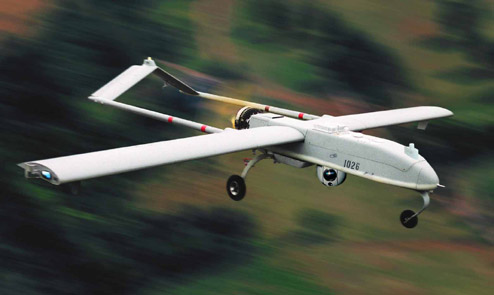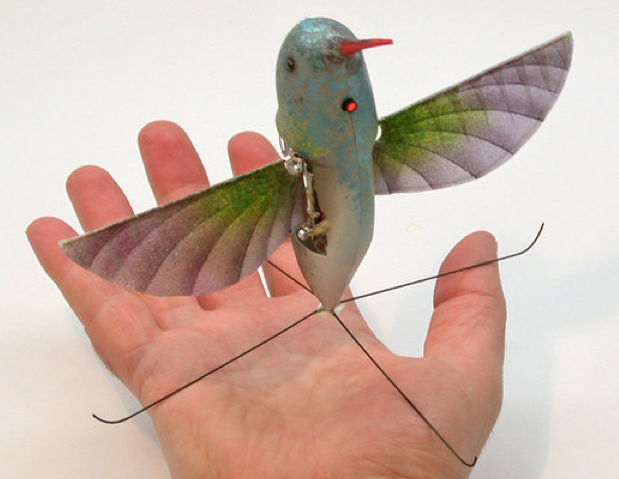Santa Fe Museum of International Folk Art
Two pieces that struck me while visiting the Museum of International Folk Art today:

Bicycle Paper Mache Figure Store
I couldn’t get close to this bicycle, so I shot it from above. Since the Chivas mascot is prominent amongst the paper mache figures, it’s safe to assume that it’s a Mexican shop on wheels, beautiful!

Decorated Head Set
I failed to write down where this head piece is from, I believe either Bolivia or Peru. A video next to a few of these featured the man who makes them from discarded objects. During a festival, men wear these things on their heads, there’s an entire armature within it that the performers need to hold, so that the piece stays in place.
“My Brooklyn” Support New Doc by Kelly Anderson
Documentary film maker and colleague Kelly Anderson has just launched a kickstarter campaign for a doc in production titled “My Brooklyn” revolving around urban planning and gentrification in Brooklyn, particularly changes occurring in and around Fulton Mall. Check out the trailer and support the film if you like what you see!
My Brooklyn trailer from Kelly Anderson on Vimeo.
Drones on the Attack
Sci fi has long predicted an army of drones, however today’s NYC Times’ article on Microdones is at once awe striking and fearful. Hear are a few excerpts that rung strongly as I read through the article:
Last summer, fighter jets were almost scrambled after a rogue Fire Scout drone, the size of a small helicopter, wandered into Washington’s restricted airspace.
“There’s a kind of nostalgia for the way wars used to be,” said Deane-Peter Baker, an ethics professor at the United States Naval Academy, referring to noble notions of knight-on-knight conflict. Drones are part of a post-heroic age, he said, and in his view it is not always a problem if they lower the threshold for war. “It is a bad thing if we didn’t have a just cause in the first place,” Mr. Baker said. “But if we did have a just cause, we should celebrate anything that allows us to pursue that just cause.”
One of the smallest drones in use on the battlefield is the three-foot-long Raven, which troops in Afghanistan toss by hand like a model airplane to peer over the next hill.
And here are a few images of the shrinking size of drones:
 The highly used Predator Drone, particularly since 9/11.
The highly used Predator Drone, particularly since 9/11.
 The Shadow Drone.
The Shadow Drone.
 And as photographed in the NY Times article the prototype for a hummingbird-like drone.
And as photographed in the NY Times article the prototype for a hummingbird-like drone.
Of course in more recent critical art practices, setting aside the long history of drones in Science Fiction, there are several works that come to mind, particularly the long standing fictional work of Alex Rivera – Cybracero and the sculptural work “Parasitos Urbanos” of Gilberto Esparza. Although Esparza’s work reflects upon the self-sufficient nature of Mexico City’s street commerce, Rivera’s work points squarely at the de-humanizing aspects of the transnational corporate-military machine. Unfortunately, critical art, does little to stop the growing drone army by the Empire’s military. And we – all tax paying U.S. citizens and non-citizens are contributors.
La Fulminante en acción
I don’t know who this performance artist is or who she is protesting against, whether it’s the Colombian government, or multinationals or power in general, but it’s exciting to see (in more ways than one), particularly the street actions, such as the performance on Bolivar’s Monument below.
Eventually she stops dancing and merely sits on the edge of the monument. The video states:
Eventually a police man forced me to step down from the Bolivar’s monument because he felt that my body on the monument’s steps was vulgar and I was ruining the tourist photos. So I continued the action without erotic dancing.
You can see more of artist’s work at: http://www.lafulminante.com or her YouTube channel: http://www.youtube.com/user/LaFulminantexxx
The Influencing Machine
Brooke Gladstone of “On the Media” recently collaborated with cartoonist Josh Neufeld on a graphic book titled The Influencing Machine. Here’s a great animated sequence using Gladstone’s words and Neufeld’s graphics to give you a sense of the nature of the book.
Flying Dragon
Digital Artifact, Dropped Frames in Flash Export as Quicktime
When exporting an HD quality Quictime from Flash, I kept getting a ton of digital artifact in my exported video files. I searched high and low on how to deal with this and didn’t find a quick solution, so I’m sharing how I went about exporting a good video. It wasn’t from Flash, it required After Effects. The image below is an example of what I kept getting from Flash. Those pieces of stars are not supposed to be present. In the image the child flies through the stars, the stars move from above the stage to below the stage, or at least they are supposed to. Here’s a link to the animation as an interactive swf file: Iggy’s ABC.

Digital Artifact on Video Still
If you are getting digital artifact or dropped frames in your Flash animation’s Quicktime export, you may try exporting using different Quicktime compression codecs or you may save a lot of time by generating the Quicktime video through After Effects.
To render a Quicktime in After Effects that is based on a Flash animation, you will beed to export two separate files:
1. the audio for the animation separately as a Quicktime.
2. the animation as a .swf (small web file). Disable the audio, it will be exported separately
To generate the audio file:
File > Export > Export Movie
name the file, decide where to save it (ideally in a directory dedicated to the project). For Format: Quicktime (choose Quicktime from Format drop down menu).
In the QuickTime Export Settings panel click the QuickTime Settings at the bottom left. This will open the “Movie Settings” panel, uncheck “Video” and make sure the “Sound” is checked. Choose a Format based on the type of audio you are using i.e. voice narration versus music. On the Mac “Apple Lossless” is a good choice. I’ve used “IMA 4:1” because it has worked well for files that combine music and narration. Set sample rate and sample size, CD quality is 44.1 kHz and 16 bits per second, stereo, this should be based on the quality of the audio that was imported.
To generate a smaller .swf file, it’s good to turn off or disable the audio since it will not be used. Do so by open the Publish Settings Panel
File > Publish Settings
Uncheck HTML as we are not targeting the web.
Click on the Flash tab (near top of window)
Click the “Set” button for Audio stream and in the “Sound Settings” window disable audio export by choosing “Disable” from the Compression drop down menu.
Do the same for Audio event
Then Publish your movie to generate the .swf file.
You should now have both a .swf of your animation and the soundtrack as a QuickTime with .mov extension, check them both.
Now you will import these two files into After Effects and create a composition that combines the two files.
In AfterEffects create a new Project and save it in the same folder where you have your .swf and Quicktime audio saved. Keep everything in the same place as the .swf and Quicktime are linked files, the path from the After Effects project to the linked media files needs to stay intact, so it’s simplest to keep them together.
Import the Quicktime Movie and the .swf files into the project – File > Import > File or merely drag them into your Project.
Create a new composition – third icon (film strip icon with shapes at bottom of Project window).
Set the preset to the target HDV/HDTV 720 25 (using 1280 x 720)
Check Width and Height to be same as Flash and Lock Aspect Ratio
Square Pixels
Frame Rate: 24 (custom setting according to the frame rate used in Flash)
Resolution: Full
Start Timecode: 0
Duration: Set the duration to the duration of your .swf file
Drag the .swf and audio onto the Comp 1 stage or timeline.
In the timeline window click the Render Queue tab.
Drag Comp 1 from the Project window into the Render Queue
Render Settings: Best Settings
Output Module: Lossless
Double click Lossless to see details and make sure that Audio Output is turned on. Have setting match the quality of audio exported from Flash.
“Take This Hammer” James Baldwin in SF 1963
Just came across this, need to see it all. It is the documentation of James Baldwin visit to San Francisco in 1963 by KQED.
Take This Hammer from Brendan Nee on Vimeo.
Support Freegan Film via Kickstarter
One of the grads, Alex Mallis, in Hunter’s Integrated Media Arts (IMA) program is seeking funding for a film capturing a group of people who feed off discarded food. Support the film via it’s Kickstarter campaign.
“An aging artist, his young assistant, and blind friend arrive by rusted retro car; a Puerto Rican woman and her teenage grandson embark on foot, lead by a rattling grocery cart; a hyperactive twenty-something and his stoned companion leave a Bushwick loft to navigate the subway. Familiar faces and converging philosophies meet to take what others deem unworthy of consumption. The reward of a free and delicious discovery activates a ritual adventure – a night of extraordinary harvest.”
– Alex Mallis, Excerpt from film description on Kickstarter
Short Doc by Hunter Film & Media Students
The fight for public education is just getting started…
